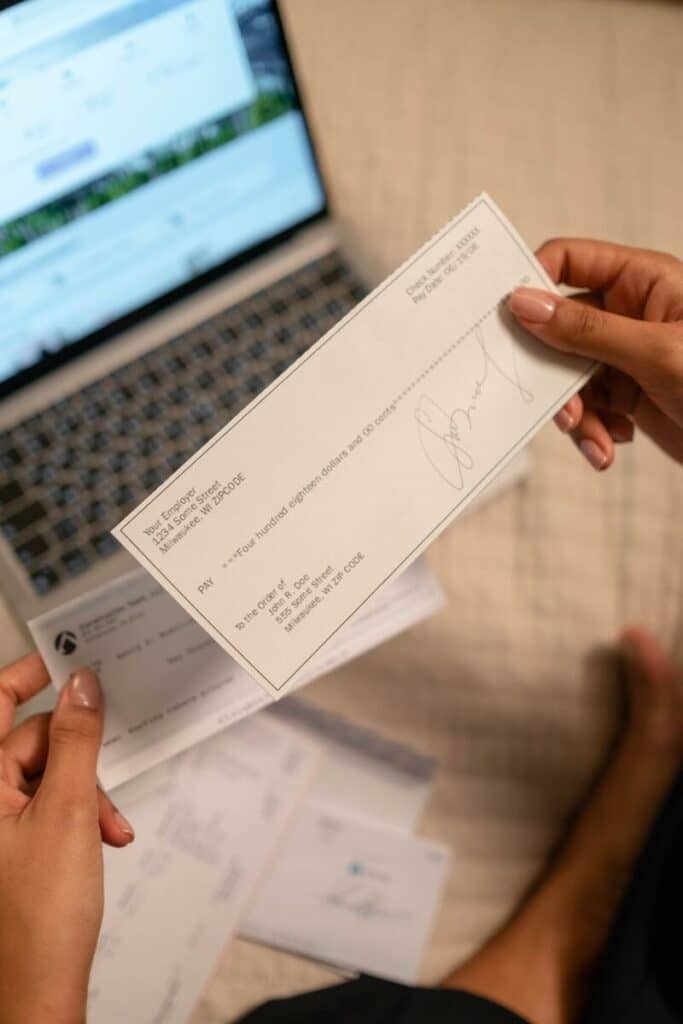Banks in Barbados are essential to the country’s economy and financial sector. As a small island nation in the Caribbean, it heavily relies on its financial industry to support its economic growth.
If you are planning to conduct any financial transactions on the island, it is crucial to understand the banking landscape in Barbados.
The different banks in Barbados offer a wide range of services. However, each bank has its unique set of offerings, fees, and requirements. Therefore, it is essential to have a comprehensive understanding of the banking options available to make informed decisions.
This blog aims to provide readers with valuable insights into the banking industry in Barbados. We will also explore the country’s regulatory environment and the latest developments in the industry and provide expert advice to help you make informed decisions about your financial needs while in Barbados.
If you are looking to invest as an expat or high-net-worth individual, which is what I specialize in, you can email me (advice@adamfayed.com) or WhatsApp (+44-7393-450-837).
Table of Contents
How is the banking situation in Barbados?
The banking situation in Barbados is stable and well-developed, with a variety of local and international banks operating in the country.
The Central Bank of Barbados is the main regulatory authority responsible for overseeing the banking industry and ensuring the stability of the financial system.
In recent years, Barbados’s banking industry has experienced significant changes and developments. One notable trend has been the banking sector’s consolidation, with several mergers and acquisitions.
For example, Republic Financial Holdings Limited (RFHL) acquired the operations of Scotiabank in Barbados, which was completed in 2020. This acquisition has made RFHL the largest bank in Barbados, with a significant market share and a strong presence in the Caribbean region.
Another significant development in the banking industry in Barbados has been the adoption of digital banking and financial technology.
The COVID-19 pandemic has accelerated this trend, as banks have had to rely more heavily on digital channels to provide services to customers.
Several banks in Barbados have launched mobile banking apps, online banking platforms, and other digital services to meet customers’ changing needs and remain competitive in the market.
The banking industry in Barbados is also actively working to support sustainable development and social responsibility. Several banks have launched initiatives to support renewable energy, climate change mitigation, and community development projects.
These efforts reflect the increasing awareness of environmental and social issues in the banking industry and the importance of responsible business practices.

How do Barbados banks contribute to the local economy?
Barbados’ banking sector is one of the most important drivers of its economy. It plays a crucial role in facilitating economic growth by providing a range of financial services that are critical to businesses, individuals, and the government.
Provision of credit
Banks in Barbados provide credit to businesses, households, and individuals. This credit is essential to the growth of the local economy as it enables businesses to expand, households to purchase homes, and individuals to invest in education and training.
Banks assess borrowers’ creditworthiness, and loans are granted at competitive interest rates once approved. This credit helps to create jobs, spur economic activity, and increase the overall standard of living.
Promotion of savings
Barbados banks promote savings by offering various types of deposit accounts. These accounts encourage people to save money, and the interest earned on these accounts helps to provide a reliable source of income for many households.
The ability to save also enables people to plan for future expenses such as education, home ownership, and retirement. This promotion of savings also helps banks by providing them with a pool of funds they can use to lend to other customers.
Facilitation of investment
Banks in Barbados facilitate investment in the economy by providing financing for businesses and projects. This financing helps to spur economic activity by enabling businesses to expand and invest in new ventures.
Additionally, banks often partner with government agencies and other organizations to fund public projects that contribute to economic development. By facilitating investment, banks help create jobs, boost productivity, and enhance the economy’s overall competitiveness.
Generation of foreign exchange
Barbados banks generate foreign exchange through their operations. This is particularly important for an island nation like Barbados, which relies heavily on imports for many goods and services.
Banks play a crucial role in facilitating international trade by providing foreign exchange services, such as currency conversion, international money transfers, and trade finance. These services enable businesses to engage in international trade and generate foreign exchange, which is critical for sustaining the local economy.
How are the banks in Barbados regulated?
The Central Bank of Barbados regulates the banking sector in Barbados. The Banking Act empowers the Central Bank of Barbados and other financial sector legislation to regulate and supervise the banking industry.
The Central Bank is responsible for ensuring the stability and soundness of the financial system, including the banking sector. It does this through various measures, including supervising and regulating banks, setting monetary policy, and promoting financial stability.
Prudential regulation is one of the key tools the Central Bank uses to regulate banks in Barbados. These regulations set the minimum standards banks must adhere to, covering areas such as capital adequacy, risk management, liquidity, and governance.
The Central Bank also sets guidelines and best practices for the banking industry to promote the stability and soundness of the financial system.
Another important role of the Central Bank is to conduct on-site examinations of banks to ensure that they are complying with the prudential regulations and other regulatory requirements.
The Central Bank also has the power to take enforcement action against banks that are not complying with regulatory requirements, including imposing fines, revoking licenses, or even initiating criminal proceedings.
Finally, the Central Bank of Barbados is also responsible for promoting financial stability in the country. It works closely with other regulatory bodies, such as the Financial Services Commission and the Ministry of Finance, to identify and address systemic risks to the financial system.
What are the best banks in Barbados?
There are several banks operating in Barbados, each offering a range of financial services to businesses and individuals.
Here are five of the best banks in Barbados, along with some information about their products and services.
Republic Bank Barbados Limited
Republic Bank Barbados Limited is a subsidiary of Republic Financial Holdings Limited, one of the largest banking groups in the Caribbean.
It offers a wide range of financial services, including personal and business banking, investment services, and international banking. The bank has a network of branches and ATMs throughout Barbados, making it easily accessible to customers.
It is known for its competitive interest rates on savings and investment accounts and its range of credit products for businesses and individuals.
The bank’s international banking services are also popular with customers who need to send or receive money from overseas.
Scotiabank Barbados
Scotiabank Barbados is a subsidiary of the Bank of Nova Scotia, one of Canada’s largest banks. It has been operating in Barbados for over 60 years and has a network of branches and ATMs throughout the country.
The bank offers a range of personal and business banking services, including savings and investment accounts, credit products, and international banking services.
Scotiabank Barbados is known for its excellent customer service and commitment to supporting the local community through various corporate social responsibility initiatives.
The bank also offers a range of digital banking solutions, including online banking, mobile banking, and a range of apps that make banking easier and more convenient for customers.
CIBC FirstCaribbean International Bank
CIBC FirstCaribbean International Bank is a subsidiary of the Canadian Imperial Bank of Commerce (CIBC), one of Canada’s largest banks. It operates in 16 countries in the Caribbean, including Barbados, where it has a network of branches and ATMs.
The bank offers a range of financial services, including personal and business banking, investment services, and international banking.
CIBC FirstCaribbean International Bank is known for its strong customer service and commitment to supporting the local community through various corporate social responsibility initiatives.
The bank’s range of credit products for businesses and individuals is also popular with customers who need financing for various projects.
RBC Royal Bank
RBC Royal Bank is a subsidiary of the Royal Bank of Canada, one of Canada’s largest banks. It has been operating in Barbados for over 100 years and has a network of branches and ATMs nationwide.
RBC Royal Bank is known for its competitive interest rates on savings and investment accounts and its range of credit products for businesses and individuals.
The bank also offers a range of digital banking solutions, including online banking, mobile banking, and a range of apps that make banking easier and more convenient for customers.
First Citizens Bank (Barbados) Limited
First Citizens Bank (Barbados) Limited is a subsidiary of First Citizens Bank Limited, one of the largest banks in Trinidad and Tobago. It has been operating in Barbados for over 20 years and has a network of branches and ATMs throughout the country.
The bank’s range of credit products for businesses and individuals is also popular with customers who need financing for multiple projects.
It has a strong presence in the Caribbean region and provides a wide range of banking services, including personal and business banking, wealth management, and insurance.

How do I open a bank account in Barbados?
To open a bank account in Barbados, you will need to follow these steps:
- Choose a bank: Research different banks in Barbados to find one that meets your needs. Look at the services offered, fees, and interest rates.
- Gather necessary documents: You will need to provide certain documents to open a bank account, including your passport or ID, proof of address (such as a utility bill), and proof of income (such as a pay stub).
- Visit the bank: Once you have chosen a bank and gathered your documents, visit the bank in person to open your account. Some banks may require you to make an appointment.
- Complete an application: You will need to fill out an application form with your personal information, including your name, address, and contact details.
- Provide references: Some banks may require you to provide references, such as a letter from another bank or a character reference.
- Deposit funds: You will need to deposit funds into your new account to activate it. You can do this by transferring funds from another account, depositing cash, or depositing a cheque.
- Wait for approval: The bank will review your application and documents, and it may take a few days to approve your account.
Once your account is approved, you can use your debit card and access online banking services. Read the terms and conditions carefully, and ask any questions before signing up for a new account.
Are there any restrictions on who can open a bank account in Barbados?
Certain restrictions exist on who can open a bank account in Barbados.
To open a bank account in Barbados, you must meet certain eligibility criteria and provide certain documentation to the bank.
Generally, individuals 18 years or older who can provide valid identification documents, such as a passport or driver’s license, can open a bank account in Barbados.
However, there may be additional requirements depending on the type of account you are opening and the bank’s internal policies.
Non-residents of Barbados may also face additional requirements and restrictions when opening a bank account.
For example, some banks may require non-residents to provide proof of their residency status, such as a work permit or a lease agreement, before they can open an account.
In addition, some banks may restrict who can open certain types of accounts, such as business accounts or accounts for non-profit organizations.
For example, a non-profit organization may need to provide additional documentation, such as a registration certificate or articles of incorporation, to open an account.
What fees and charges can I expect when banking in Barbados?
The fees and charges vary depending on the bank, your account type, and the specific services you use.
Here are some common fees and charges that you may encounter when banking in Barbados:
- Account maintenance fees: Some banks charge a monthly or quarterly fee for maintaining your account. This fee may vary depending on the type of account you have and your account balance.
- Transaction fees: You may be charged a fee for certain transactions, such as ATM withdrawals, wire transfers, and bill payments. The fee may depend on the transaction amount and whether it is a domestic or international transaction.
- Overdraft fees: You may be charged an overdraft fee if you overdraw your account. This fee can be a flat fee or a percentage of the amount overdrawn.
- Foreign exchange fees: If you transact in a foreign currency, you may be charged a fee for the foreign exchange conversion.
- Credit card fees: If you have a credit card, you may be charged fees for late payments, cash advances, and balance transfers.
- Cheque fees: Some banks charge a fee for issuing or depositing cheques.
- Monthly statement fees: Some banks charge a fee for providing monthly statements in paper form.
It is important to review the fee schedule provided by your bank and understand the fees and charges associated with your account and the services you use.
You may also want to compare fees and charges across different banks to find the best option.

What types of accounts are available at Barbados banks?
Barbados banks offer a range of account types to meet the needs of their customers.
The types of accounts available vary depending on the bank, but here are some of the most common account types that you can expect to find:
Savings accounts
Savings accounts are designed for customers who want to save money and earn interest on their deposits. These accounts typically have lower fees and may offer higher interest rates than others.
Chequing accounts
Chequing accounts are designed for customers who need to make regular transactions, such as paying bills and writing cheques. These accounts may have higher fees than savings but offer additional features, such as overdraft protection.
Business accounts
Business accounts are designed for small businesses and corporations. These accounts may offer features such as merchant services, payroll services, and online banking for multiple users.
Investment accounts
Investment accounts are designed for customers who want to invest their money and earn a return on their investment. These accounts may offer a range of investment options, such as mutual funds, stocks, and bonds.
Credit card accounts
Credit card accounts allow customers to make purchases and pay for them over time. These accounts may offer rewards programs and other benefits, such as travel insurance and purchase protection.
Mortgage accounts
Mortgage accounts are designed for customers who want to finance the purchase of a home or other property. These accounts may offer different types of mortgages, such as fixed-rate and adjustable-rate mortgages.
How do I transfer money to and from Barbados banks?
There are several ways to transfer money to and from Barbados banks. Here are some common methods:
Bank transfers
You can transfer money between bank accounts using a bank transfer. This can be done online, through a mobile app, or by visiting a bank branch. To initiate a bank transfer, you will need the recipient’s bank account number and the bank’s routing number.
Wire transfers
Wire transfers allow you to send money internationally to a bank account in Barbados. This can be done through your bank or a money transfer service. To send a wire transfer, you will need the recipient’s bank account number, the bank’s routing number, and the SWIFT code for the bank.
Online money transfer services
Several online money transfer services allow you to send money to a bank account in Barbados. These services often offer lower fees and faster transfer times than traditional bank transfers or wire transfers. Examples of online money transfer services include PayPal, TransferWise, and WorldRemit.
Debit or credit card transfers
Some banks in Barbados allow you to transfer money using your debit or credit card. This can be done online or through a mobile app. You must provide the recipient’s bank account number and the bank’s routing number.
Cash transfers
If you need to send money to Barbados quickly, you can use a cash transfer service such as Western Union or MoneyGram. These services allow you to send money to a recipient who can pick it up at a designated location in Barbados.
Are there any special considerations I need to be aware of when banking in Barbados as a foreigner?
To open a bank account in Barbados as a foreigner, you will need to provide documentation such as a passport, proof of address, and proof of income or employment.
Some banks may also require additional documentation, such as a work permit or a letter of reference from a bank in your home country.
To exchange foreign currency for Barbadian dollars, compare exchange rates and fees across different banks and currency exchange services.
It is also important to note that some banks may require a minimum deposit or account balance in Barbadian dollars.
If you are a foreigner banking in Barbados, you should be aware of the tax implications of your account. Barbados has a tax treaty with several countries, including the United States and Canada, that may affect how your income is taxed.
Consider consulting with a tax professional to understand your tax obligations.
You may encounter additional fees and requirements if you need to make international transactions, such as wire transfers or foreign currency exchanges.
It is important to review the fees and exchange rates associated with these transactions and ensure that you have all the necessary documentation and information.
If you plan to visit a bank branch in person, choose a bank with a convenient location. Some banks may have multiple branches across the island, while others may only have one or two locations.

How safe and secure are Barbados banks?
Barbados banks are generally considered safe and secure. The banking sector in Barbados is regulated by the Central Bank of Barbados, which oversees the operations of banks and financial institutions on the island.
They are required to comply with strict regulations and standards for risk management, financial reporting, and customer protection. They are also subject to regular audits and inspections to ensure compliance with these standards.
In addition, many banks in Barbados offer online and mobile banking services with advanced security features such as two-factor authentication, encryption, and fraud detection. These services help protect customer information and prevent unauthorized access to bank accounts.
That being said, taking appropriate precautions to protect your financial information and transactions is important. This includes using strong passwords, monitoring your account activity regularly, and reporting suspicious activity to your bank immediately.
Conclusion
Barbados boasts a strong and stable banking sector that is highly regulated and governed by the Central Bank of Barbados.
As a result, customers can feel confident that their money is safe and secure in the hands of these institutions.
Whether you are a resident, an expatriate, or a tourist, Barbados banks are a reliable and trusted option for managing your finances on the island.
Pained by financial indecision? Want to invest with Adam?

Adam is an internationally recognised author on financial matters, with over 760.2 million answer views on Quora.com, a widely sold book on Amazon, and a contributor on Forbes.



